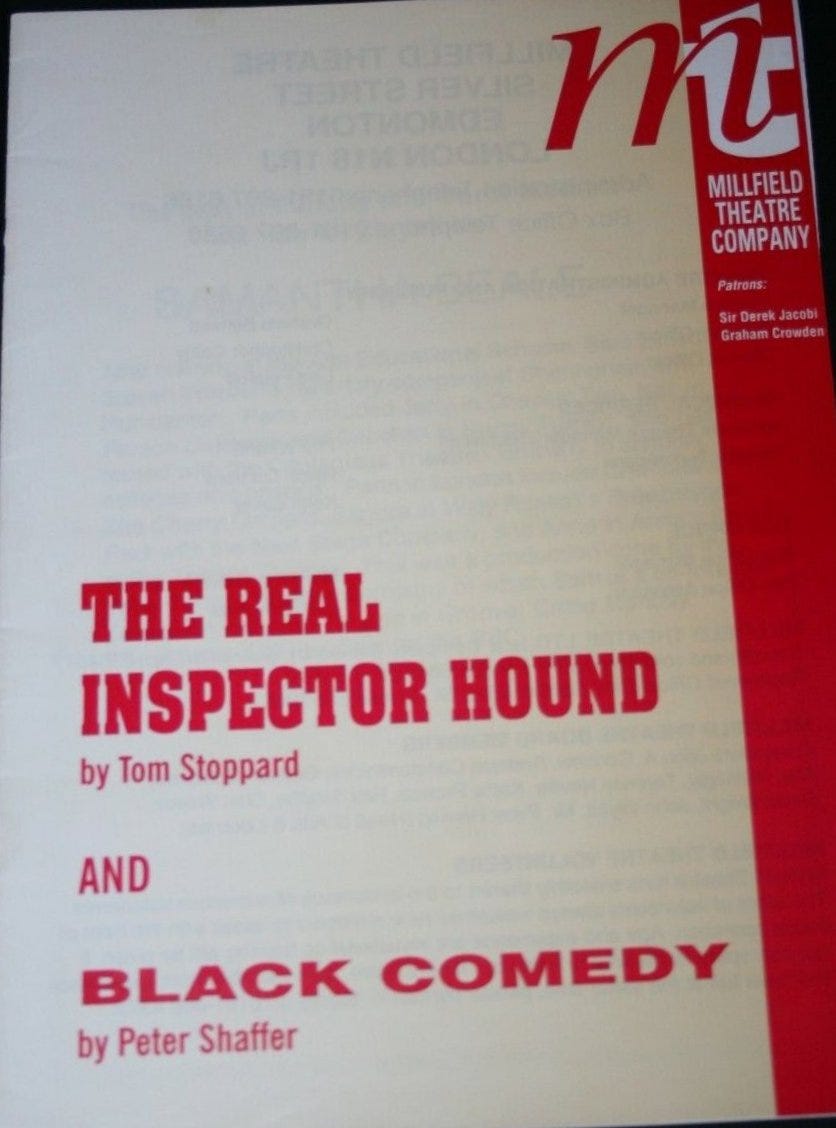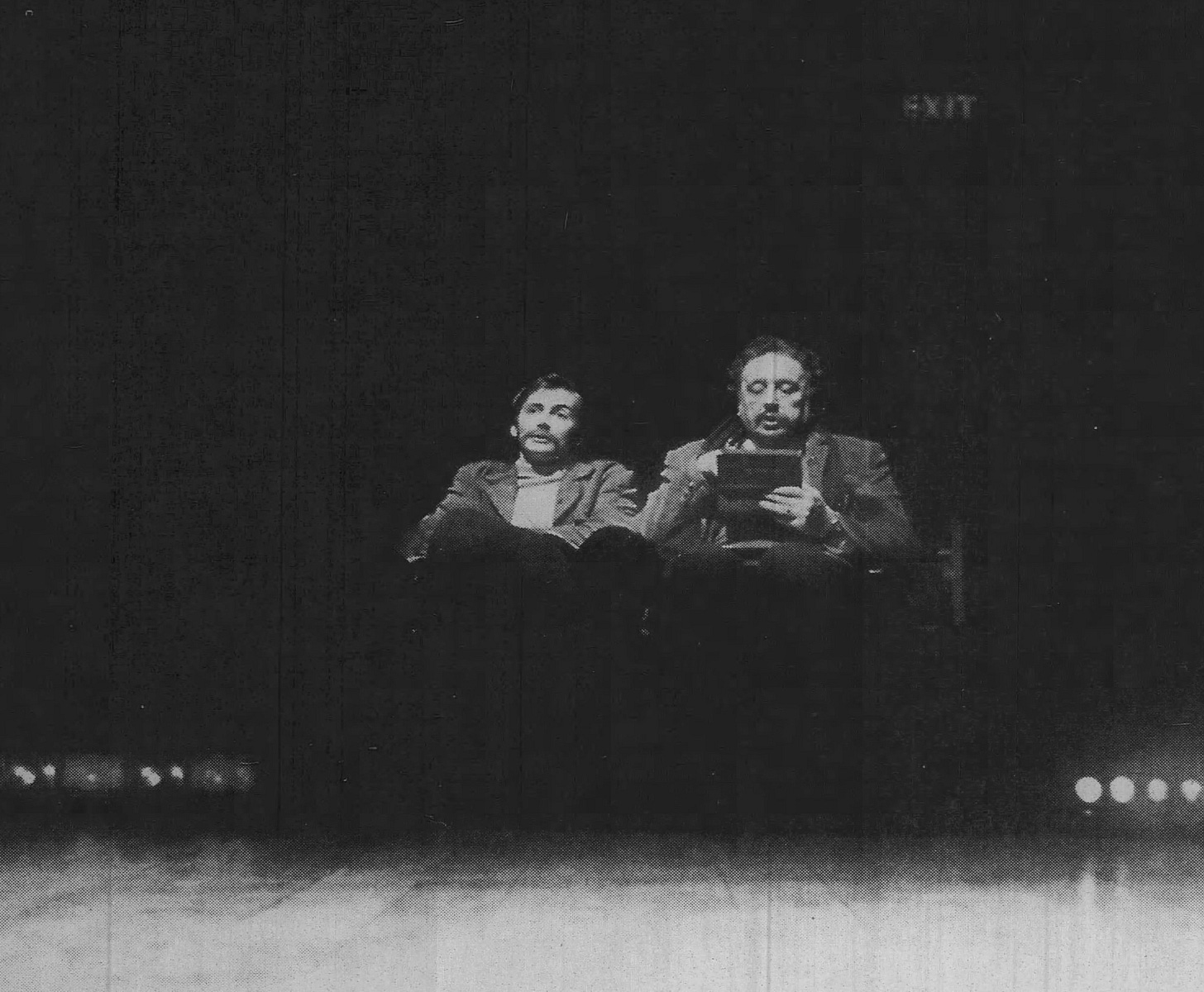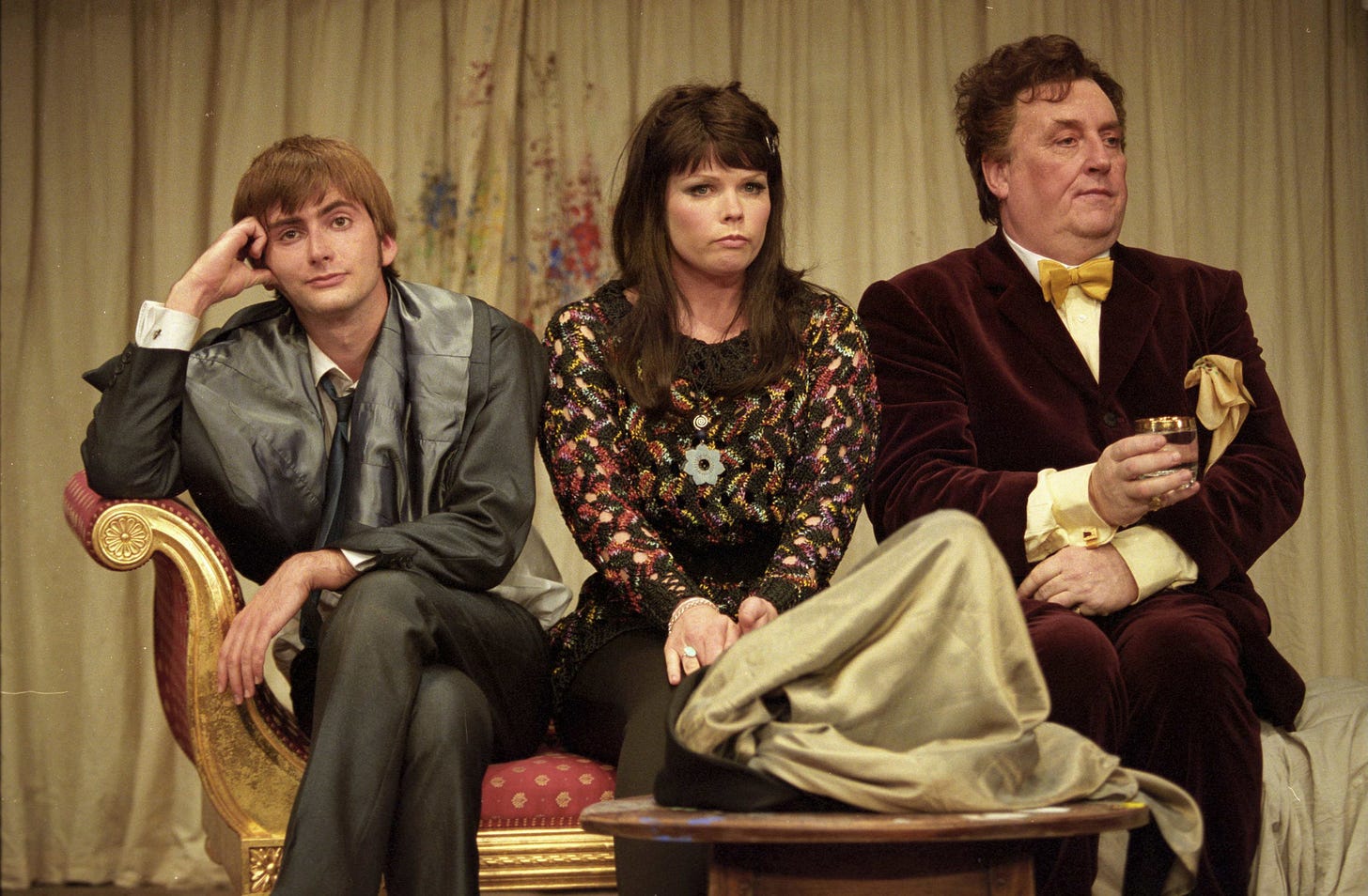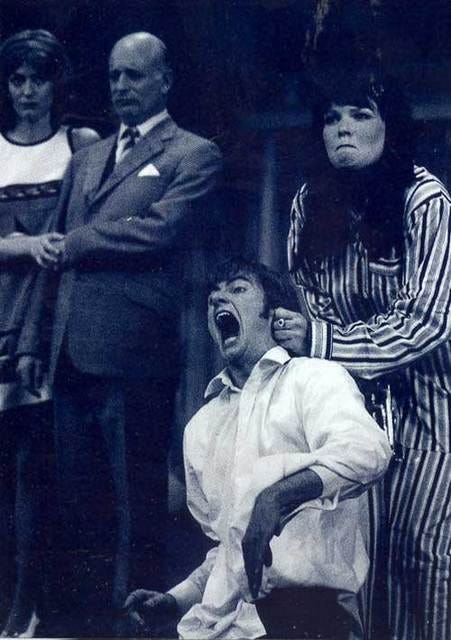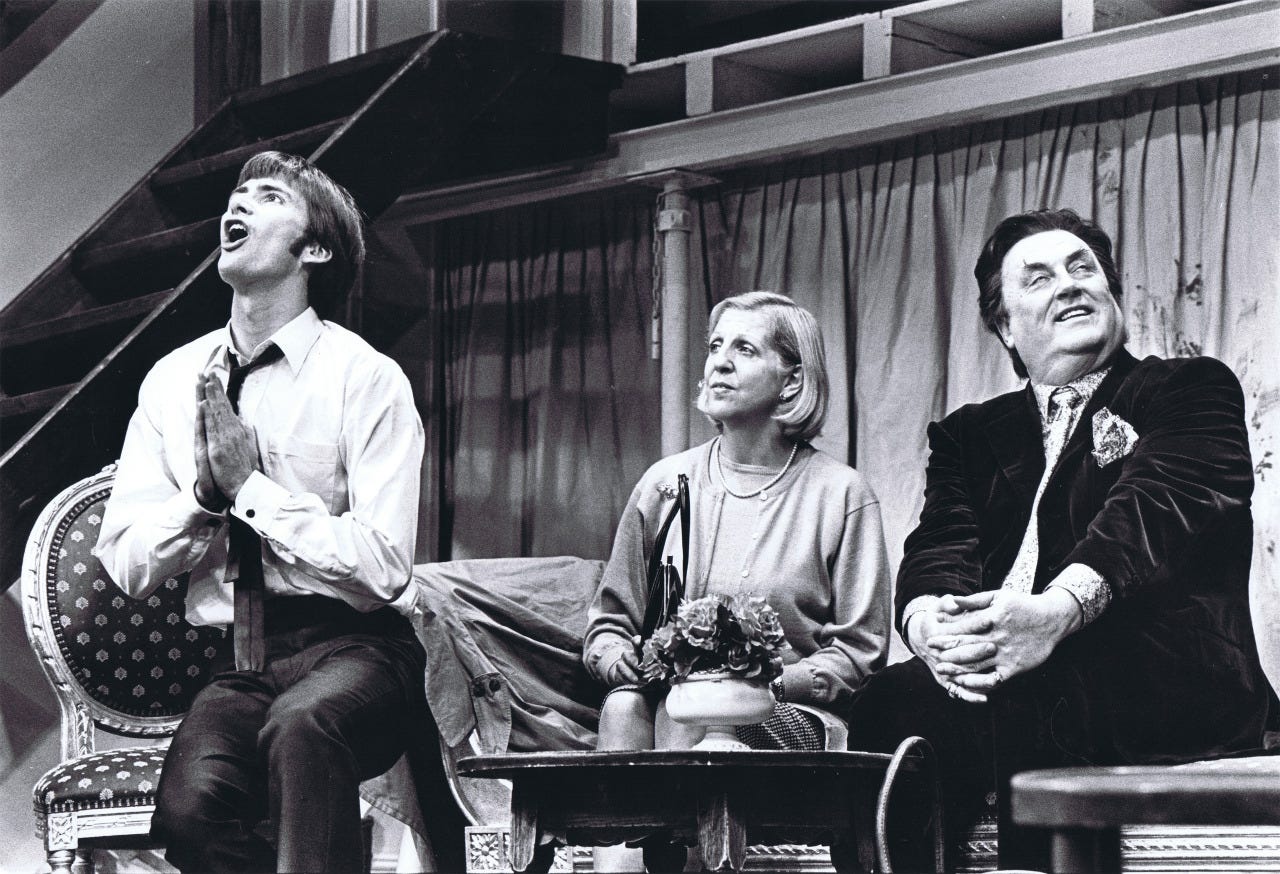Theatre Deep Dive: David Tennant in ’The Real Inspector Hound/Black Comedy’ (1998)
For today’s dig into DT’s theatre career, let’s have a chat about the 1998 double-billed plays The Real Inspector Hound and Black Comedy, shall we? They’re a bit special, because these were the plays which introduced David to Gregory Doran. Doran was at the director’s helm for both.
I have the programmes for the play’s Richmond Theatre and Comedy Theatre runs…oh, and just so you know, The Comedy Theatre is now called the Harold Pinter Theatre (the theatre where David did his production of Good.) Anyway, these two photos are the front cover and the cast list from my Comedy Theatre programme:
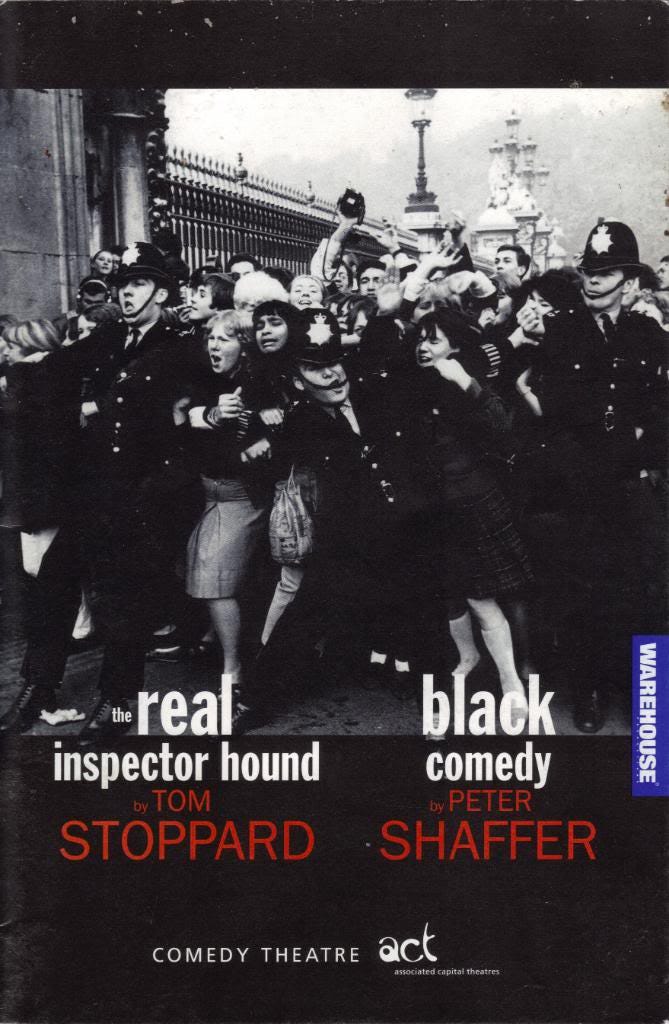
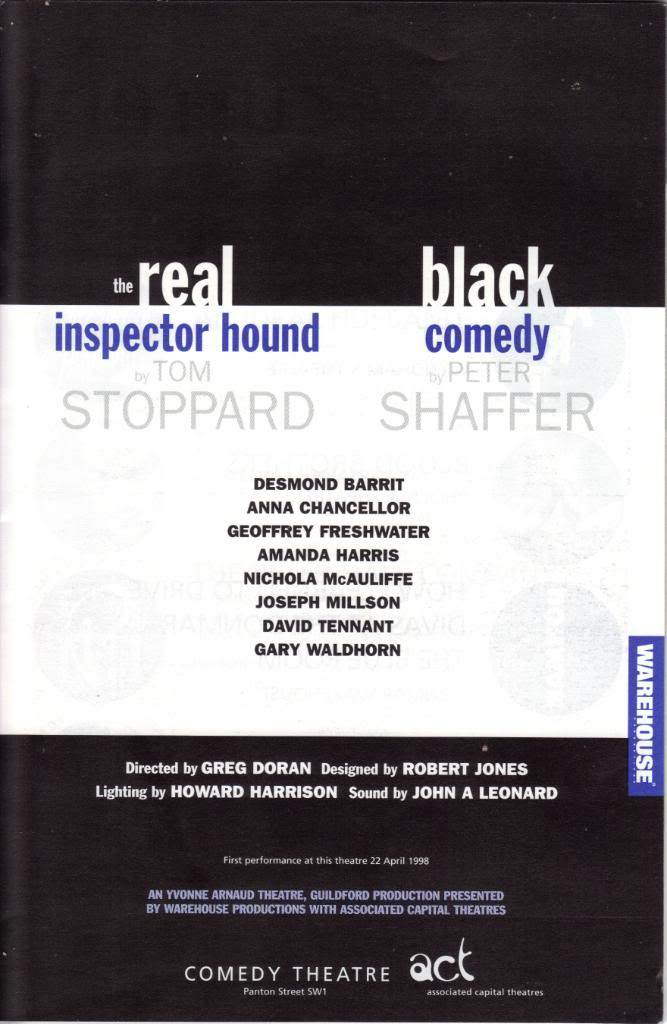
Sadly, I’m missing the programme for the production’s run at the Yvonne Arnaud Theatre – my hunt continues! – but I do have the programme for the play’s Richmond Theatre run. I find it fascinating as well as beneficial to collect the programmes for all parts of each production’s run, since many of the programme details (including such things as cast lists and the works listed in each actor’s biography) can change from venue to venue.
To see this in action, here are the front cover and the cast list from my Richmond Theatre programme of the production:
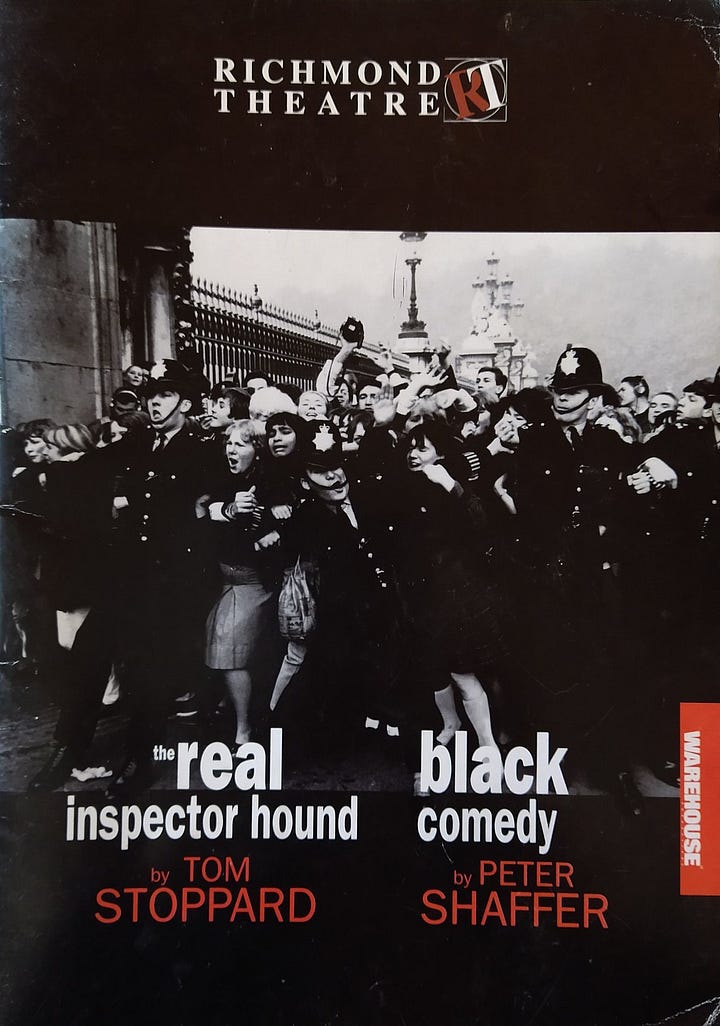
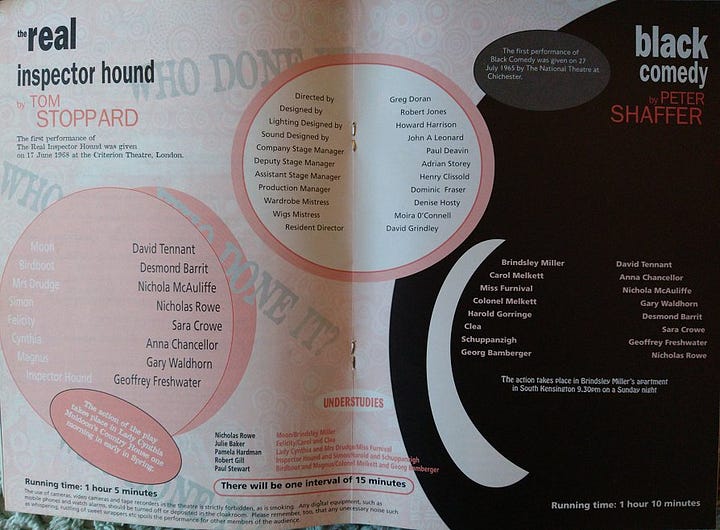
Now back to the plays, and their particulars.
Peter Shaffer’s Black Comedy and Tom Stoppard’s The Real Inspector Hound were two one-act satirical plays from the 1960s with many similarities. Both were farcical and played off comic stereotypes: The Real Inspector Hound targeted theater critics and an Agatha Christie-style crime thriller, and Black Comedy aimed for one-dimensional “Clue”-like characters getting into trouble in slapstick physical comedy. Both also had five men and three women in the cast.
The production opened at the Yvonne Arnaud Theatre in Guildford for press night on 25 March 1998. It moved to the Richmond Theatre for a 7 April to 11 April 1998 run, and then to the Comedy Theatre (now the Harold Pinter) on 22 April 1998. At that venue it was extended from its initial end date of 11 July, and ran through 8 August 1998. The show ran 2 hrs and 40 minutes long: The Real Inspector Hound clocked in at 1 hr and 5 minutes, then a 20 min interval, and then Black Comedy ran 1 hr and 10 minutes.
Even though all the reviewers at the time went on and on and bloody ON about how these two plays had never been produced together, I’ve found that’s not quite accurate. A production of the two plays was staged in 1996 by London’s Millfield Theatre Company:
So to my knowledge, that’s the only other time prior to Doran’s production.
Anyway, Doran let the same set of actors play two different sets of comic stereotypes in two separate situations, and chose to keep both plays set in their original 1960s settings instead of bringing them into the present.
Now - on to the plays!
The first play of the evening, The Real Inspector Hound, saw David play a self-obsessed, downtrodden theatre critic named Moon. It’s a play within a play - one is a parody of the Agatha Christie country-house type thriller, and the other a study in wish-fulfillment, showing how a couple of theatre critics are drawn inexorably into the play.
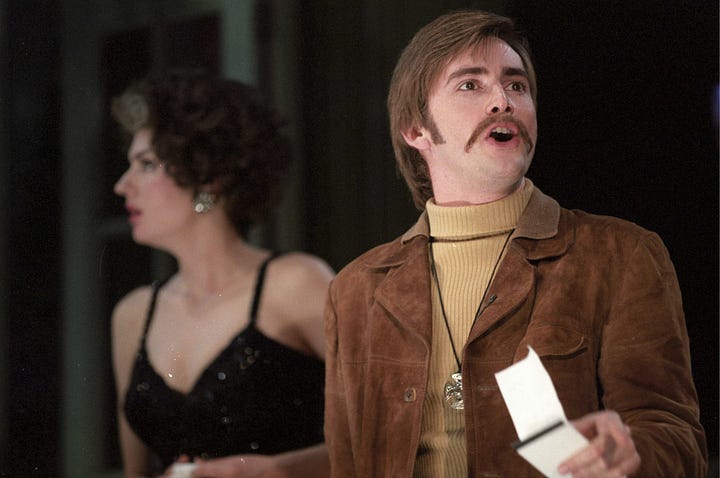
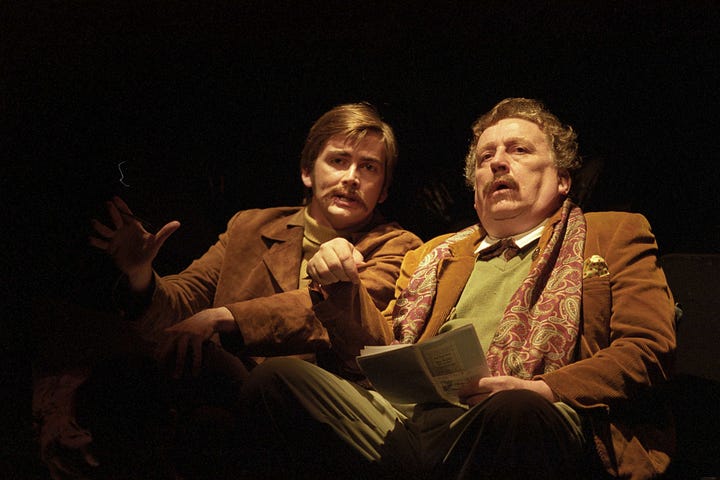
Moon - along with his fellow critic Birdboot - start watching a country house thriller in order to review it. But Moon can’t stop harboring murderous thoughts of his own. He’s a second-rate critic, and he knows he’ll never get out from under the shadow of the senior reviewer. Meanwhile, the thriller the two critics are watching starts unfolding in front of the audience’s eyes, and Moon and Birdboot - who at the start of the play are behind the action - slowly keep moving towards its center. Stoppard takes the fantasy of wondering what it would be like to get up and join the action by breaking down the wall between stage and auditorium, following it through to a fatal piece of audience participation and a nightmarish conclusion.
Surreal!
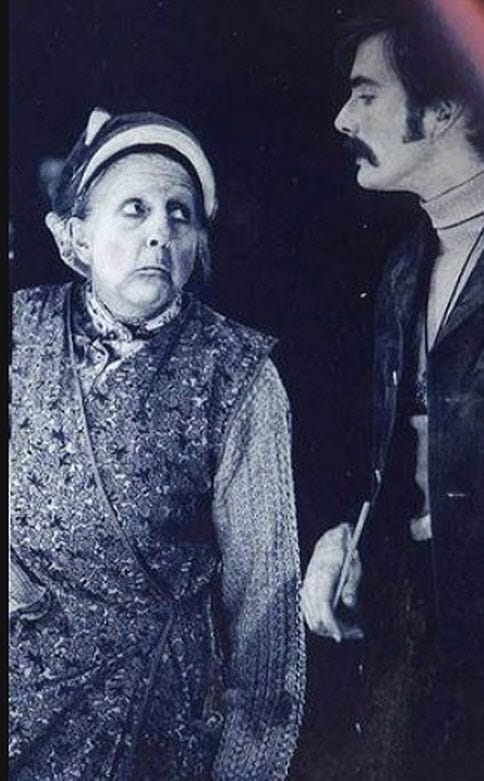

Then came the interval, and afterwards came Black Comedy. Shaffer titled it after its clever and unique contrivance: the stage is fully lit to see characters when they’re “in the dark,” and the stage goes dark when the action is supposed to take place in normal light. So when the curtains open the stage is cloaked in darkness, and when the characters talk about a party they’re about to give and then mention a blown fuse, the stage lights go on. But for the ~characters~ it’s now dark, so they begin to fumble and feel their way about. Very clever indeed!
David played Brindsley Miller, a young beatnik sculptor living in a flat in South Kensington. Brindsley had “borrowed” a lot of posh art and furniture from a gay neighbor who’d went on holiday and placed it in his own flat in order to impress both the deaf German millionaire who wishes to look at his work and his fiancee Carol’s father, the Colonel, who’ll he’ll be meeting for the first time. But Brindsley’s web of deception begins to catch up to him when his neighbor returns home early and joins the party.
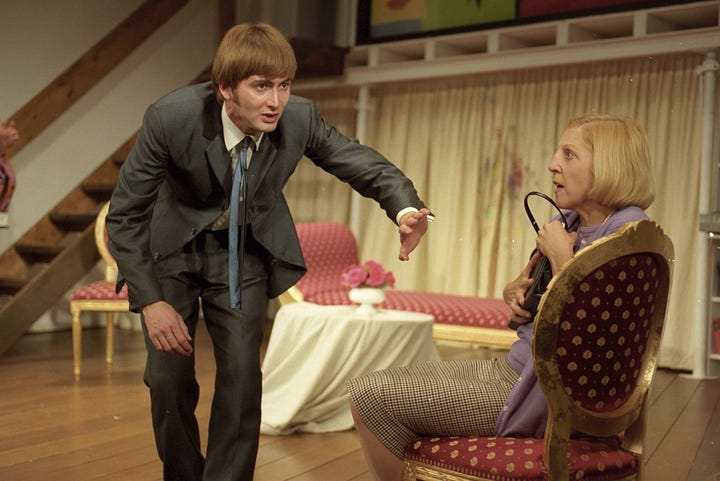
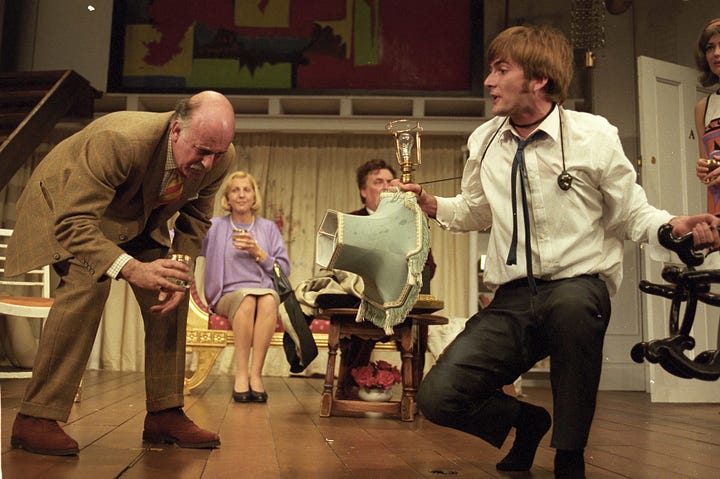
Poor old Brindsley has to return everything he borrowed…without anyone knowing. In the dark! But then it gets worse. The longtime girlfriend Brindsley recently broke up with (but is still in love with) walks in. And his gay neighbor, Brindsley learns, is also in love with him! And soon a spinster drinking herself silly, a man from the electricity board, and the aforementioned deaf German millionaire join the party. And everyone is jealous. And there are a lot of tantrums.
And Brindsley gets his ear twisted.
David - and the plays - got a slew of positive reviews! Black Comedy’s breakneck pacing, near-misses and pratfalls made it a perfect vehicle for David’s athletic and comedic acting. For his role as Brindsley, David was called “for all the world a young Davy Jones in his two-tone suit.”
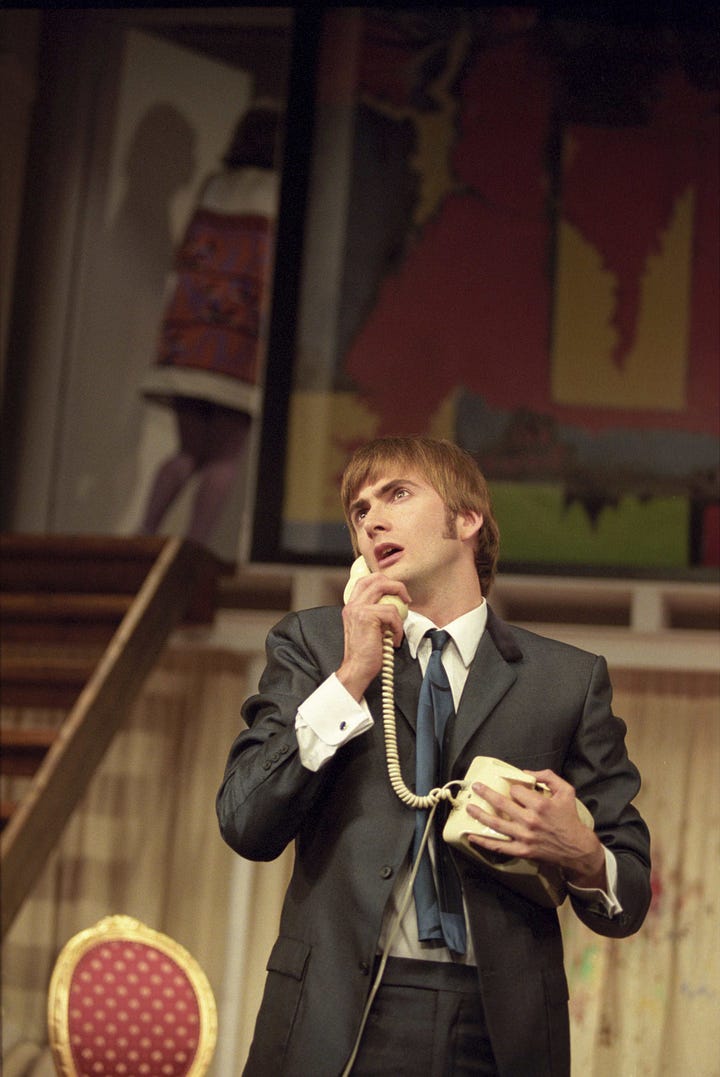

Other reviewers said David had “all the sweaty desperation of the farceur,” was “splendidly agile,” and offered “a virtuoso demonstration of physical farce-playing.” Yet another reviewer said, “No one works harder than David Tennant…this is inspired clowning as he fumbles his way about spreading confusion all around.” And one even went so far as to say David was highly promising and “strongly recalled Michael Crawford, who played the role on Broadway, as the hapless and increasingly hysterical Brindsley.”
For his role as Moon in The Real Inspector Hound, David was “particularly fine, all slumped angular embitterment as the aggrieved second-string critic.” Another said the role was “beguilingly and plausibly played,” and another that he “shin[ed] as the ever more deranged Moon.”
I wish I could’ve seen these. As far as I know, no recordings of this production (video or audio) were ever made. *sigh*
And that, my friends, is a wrap!





